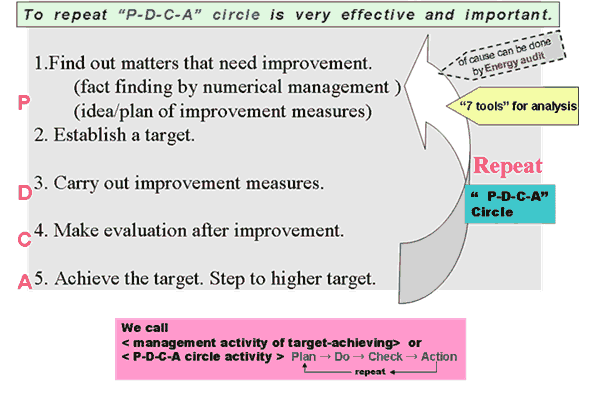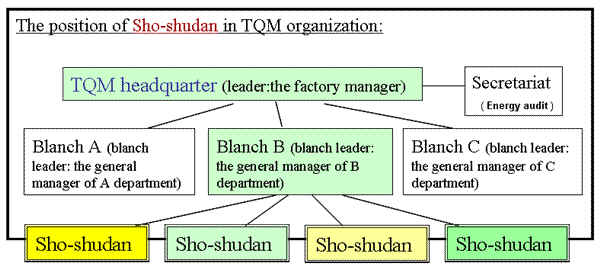How to increase energy efficiency?
Basic methodology of management
Basic methodology of management

| AEEC Home | Training Index | Index | Top | Previous | Next |
| ECCJ / Text | India |
How to increase energy efficiency? Basic methodology of management |
 |
Achieving energy management
|
|
Energy intensity (or energy unit consumption) |
|
As the management of energy, “energy intensity” is widely accepted. The definition is:“ “Energy consumption amount” --- heat (J) and/or electric power (Kwh) (→ combined in crude oil equivalent) --- can be represented by individual particular unit --- steam: ton, water: m3, fuel: Kl etc. “Production amount” --- unit: weight (tonnage), number of products, treated area(m2), working time (h), etc Example: energy intensity of boiler
|
| <Japanese way> TQM and Sho-shudan activity
Key persons: Top management, Energy manager, Sho-shudan leader |
|
Energy is used everywhere. Energy is used by everybody. → suitable for TQM Utilization of workers’ ability (incentives for workers and top-management) → Sho-shudan *TQM and Kaizen by Sho-shudan activity are very popular in Japanese enterprises/factories. (Sho-shudan activity is generally included in TQM.)  In many cases energy managers play the role of secretaries, advisers, instructors. |
| 10/11 Next |
| AEEC Home | Training Index | Index | Top | Previous | Next |